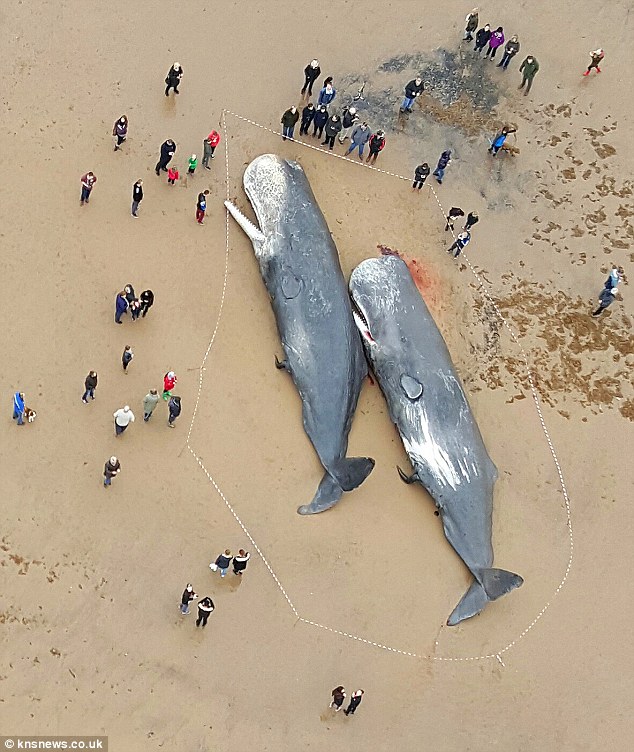On a winter weekend, the North Sea became the stage for a heartbreaking sight: four giant sperm whales—some up to 48 feet long—washed up dead near Skegness and Hunstanton.
They weren’t alone. Their pod, originally 17 strong, likely came from the deep waters off Norway.
A fifth whale was soon found nearby. Along Europe’s shores, a dozen more washed up in Germany and the Netherlands.
For marine mammal experts and anyone who loves these creatures, it was a gut punch—an epic tragedy.
Why Did These Whales Strand?
Sperm whales are built for the deep—the true submarines of the ocean, able to dive a mile down and stay there for hours. In the North Sea’s shallow, food-poor waters, they become disoriented and lost. If one is sick or weak, others often follow, driven by loyalty so deep it can lead to group strandings.
These are animals with the largest brains on Earth—intelligent, social, even capable of grief. If one makes a fatal mistake, the others can’t leave it behind.
The Aftermath: A Messy, Emotional Scene
Locals flocked to the beaches. Some tagged the whales with anti-nuclear graffiti; scavengers tried to cut out teeth to sell. One whale exploded from methane buildup during necropsy. Security had to keep crowds at bay—both for public safety and to allow scientists to investigate.
Inside, scientists found scars from epic battles with giant squid. Some whales had ingested plastic bags, a deadly reminder of the pollution choking our oceans.
What Really Killed Them?
There’s no single villain.
-
Disorientation: Bad weather, sickness, or military sonar can throw their legendary navigation off.
-
Pollution: Heavy metals, PCBs, and plastic weaken and sicken even the strongest.
-
Loyalty: Their social bonds are their undoing. If one is doomed, the rest may follow.
A Shared History—and a Warning
Humans have hunted, studied, and idolized sperm whales for centuries. Their oil once lit the world. Their stories filled our books—Moby-Dick was inspired by real strandings on these very shores.
Now, they’re protected by law. We chase away poachers and grieve their loss instead of profiting from it.
Why We Care
When whales die on our beaches, it stings because we recognize something of ourselves: loyalty, intelligence, tragedy. These are not just casualties—they’re warnings.
If we want to keep sharing the world with giants like these, it’s on us to protect their oceans—before tragedy like this becomes even more common.


